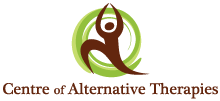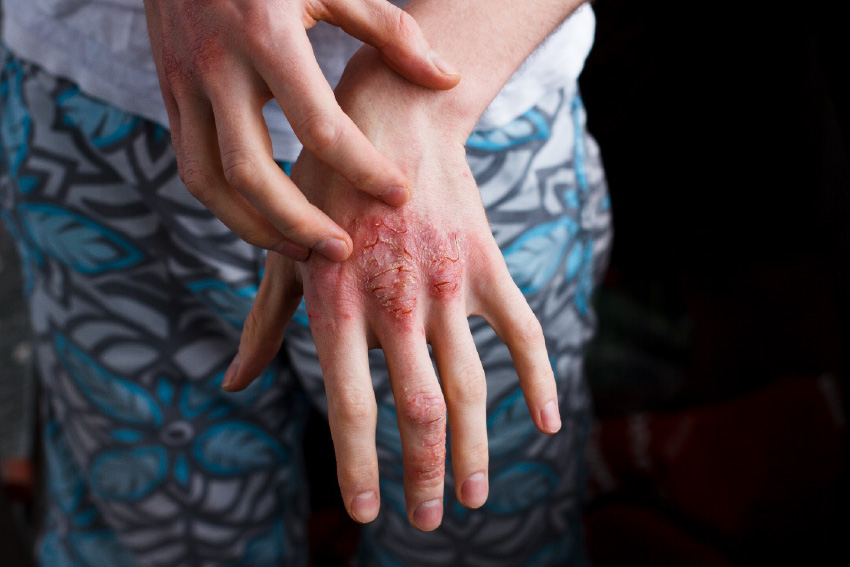Comprehensive Health Strategies to Manage Psoriasis: An Integrative Approach
What is Psoriasis?
October is World Psoriasis Day (https://canadianpsoriasis.ca/en/resources/awareness-campaigns/world-psoriasis-day). Psoriasis is a chronic autoimmune condition characterized by the rapid proliferation of skin cells, resulting in red, scaly patches that can be painful and itchy. This condition, which affects approximately 2-3% of the global population, manifests in different forms, with plaque psoriasis being the most common. While the exact cause of psoriasis is unknown, it is widely believed to be linked to a combination of genetic, environmental, and immune system factors.
Understanding Psoriasis: Causes and Disease Manifestation
Psoriasis is primarily driven by an overactive immune response that speeds up skin cell turnover. In healthy skin, cells regenerate every 28-30 days. However, in psoriasis patients, this process accelerates, causing new cells to form every 3-4 days. These cells build up on the skin’s surface, forming thick, scaly patches.
The root cause of psoriasis involves complex interactions between genetic predisposition and environmental triggers such as stress, skin injuries, infections, and certain medications. Immune system dysfunction, specifically an imbalance in T-cells, leads to the release of pro-inflammatory cytokines, which exacerbate skin inflammation and accelerate skin cell turnover.
Factors Influencing Psoriasis Severity and Childbirth:
Many women report changes in their psoriasis symptoms during pregnancy. Hormonal shifts related to childbirth often play a role in either alleviating or intensifying psoriasis symptoms. Some women experience flare-ups during pregnancy, while others find relief. After childbirth, many women face a worsening of symptoms, likely due to hormonal fluctuations and postpartum stress.
Current Drug Therapy Solutions and Typical Outcomes
The treatment of psoriasis often involves a combination of therapies, including:
- Topical treatments: Corticosteroids, vitamin D analogs, and coal tar are applied directly to the skin to reduce inflammation and slow down cell production.
- Phototherapy: UVB and PUVA light treatments help control psoriasis symptoms by reducing inflammation and slowing skin cell turnover.
- Systemic medications: Oral or injectable medications like methotrexate, cyclosporine, and biologics (e.g., TNF inhibitors and IL-17 inhibitors) are used for moderate to severe cases. Biologics target specific parts of the immune system to reduce inflammation and stop the progression of the disease.
While these treatments can effectively manage symptoms, they often come with side effects, and long-term use of immunosuppressants can increase the risk of infections and other health complications. Therefore, many patients seek complementary therapies to reduce reliance on conventional drugs.
Complementary Health Strategies for Managing Psoriasis employed at the Centre of Alternative Therapies (COAT)
Homeopathy:
Homeopathy is a system of alternative medicine based on the concept of “like cures like.” Remedies are tailored to the individual and focus on stimulating the body’s natural healing processes. While anecdotal evidence suggests that homeopathy may provide relief for some psoriasis patients, clinical trials have shown mixed results. A comprehensive review of peer-reviewed literature reveals limited robust scientific evidence to support homeopathy as a primary treatment for psoriasis.
At COAT, we first take a comprehensive Client Medical History and utilize specialized Homeopathic Software to predict the traditional remedies that show the most promise of effectiveness 1,2,2,3. In combination with our case history our practitioners design a custom compounded remedy for you to evaluate.
Nutritional Approaches:
Diet plays a crucial role in managing chronic inflammation, including psoriasis. Research indicates that certain dietary changes may help reduce flare-ups. Key recommendations include:
- Anti-inflammatory diets: Rich in omega-3 fatty acids (found in fishlike salmon and flaxseeds), antioxidants (found in fruits and vegetables), and whole grains, which may help reduce psoriasis-related inflammation.
- Gluten-free diets: Some studies have found a link between psoriasis and celiac disease, suggesting that people with gluten sensitivity may benefit from a gluten-free diet.
- Vitamin D: Adequate levels of vitamin D, either through supplementation or sun exposure, are essential for regulating immune function and skin health.
From the Client Medical History Intake and the Seven Day Food Diary a personalized assessment of a nutrition plan is given to the client. 6,7,8,9,10
If you have psoriasis, the best foods include:
- Lean protein or plant-based proteins such as tofu or tempeh.
- Fruits and vegetables.
- Legumes (beans and lentils).
- Nuts and seeds.
- Fruits and veggies, especially berries, cherries, and leafy greens.
- Salmon, sardines, and other fish rich in omega-3 fatty acids.
- Antioxidant-rich herbs and spices like thyme, sage, cumin, and ginger.
- Heart-healthy sources of fat, like olive oil, seeds, and nuts.
Foods to Avoid with Psoriasis: Alcohol, refined carbohydrates, dairy, high in sugar, gluten,
processed foods.
Though nutritional interventions may not cure psoriasis, they can serve as part of a holistic management strategy to reduce the severity and frequency of flare-ups.
Botanical Medicine:
Botanical remedies, such as aloe vera, turmeric, and Oregon grape, have been studied for their anti-inflammatory and immune-modulating properties. A systematic review of clinical trials suggests that topical treatments like aloe vera gel can reduce the severity of psoriasis plaques. Turmeric, with its active compound curcumin, has shown promise in reducing inflammation when taken orally.
Supplements for Psoriasis:1,11,12,13,14
- Multi Vitamin and Mineral supplement with Vitamin A, Vitamin B-12, Vitamin C, Biotin, Vitamin E, Magnesium, MSM, Omega-3, Selenium, Turmeric Capsules to support the Immune system, the nervous system and the skin.
- Vitamin D 10000 IU/drop
- Probiotics
Herbs for Psoriasis15,16,17
- Aloe Vera
- Boswellia serrata
- Burdock
- Evening Primrose oil
- Ginseng
- Milk thistle
- Oregon grape
- Psoralea corylifolia18
- Turmeric
Ayurvedic Approach13,19,20
- Aloe Vera
- Guggul (Commiphora mukul)
- Khadira (Acacia catechu)
- Neem (Azadirachta indica)
- Rubia cordifolia
- Turmeric
- Tinospora Cordifolia
- Eat Bitter and astringent foods: bitter gourd, neem, spinach, pomegranates, green leafy vegetables, beans, ginger, cumin, fennel, drink warm water, coconut, cucumbers, aloe vera, fruits, vegetables.
- Stress management, adequate sleep, sun exposure.
- Avoid Pitta aggravating foods: hot, spicy, fried and fermented foods, red meat, caffeine, alcohol and dairy products.
Medical Astrology Approach:
- Zodiac tonic made with homeopathic and tissue salts according to each client zodiacal sign.
- For Fire Signs (Aries, Leo and Sagittarius): cooling herbs like Aloe vera and calendula are recommended and anti-inflammatory supplements such as Omega-3.
- For Earth signs (Taurus, Virgo and Capricorn): they benefit from using grounding herbs like Chamomile and Licorice as well as supplements Probiotics.
- For Air signs (Gemini, Libra, Aquarius): calming herbs such as Lavender, Passionflower and supplements like Magnesium can support skin and mental health.
- For Water signs (Cancer, Scorpio and Pisces): benefits from detoxifying herbs like Dandelion and Burdock and from calming herbs such as Valerian and Lemon balm.
Patient Resources and Canadian Associations for Psoriasis Support
If you or someone you know is managing psoriasis, several resources and organizations in Canada provide valuable support, including:
- Canadian Association of Psoriasis Patients (CAPP): Offers resources, advocacy, and support groups for those living with psoriasis.
- Psoriasis Canada: Provides educational materials, access to clinical trials, and community support for individuals and families affected by psoriasis.
- The Eczema Society of Canada: While focused primarily on eczema, this organization provides overlapping resources and information relevant to psoriasis patients, especially those with coexisting skin conditions.
Conclusion
Managing psoriasis requires a multifaceted approach that includes conventional drug therapies, lifestyle modifications, and complementary treatments. While biologics and immunosuppressive drugs remain the cornerstone for severe psoriasis, many patients benefit from integrative therapies like nutrition, botanical medicine, and even homeopathy. Patients should work closely with their healthcare providers to develop a personalized treatment plan that considers their unique needs, preferences, and medical history.
For those in Canada, local organizations and healthcare professionals can offer guidance and support to help manage symptoms and improve quality of life. With the right strategy, living with psoriasis can be more manageable and less disruptive to daily life.
References:
1.https://www.healthline.com/health/homeopathic-remedies-for-psoriasis#side-effects-and-precautions
2.https://www.psoriasis.org/integrative-approaches-to-care/
- https://www.lybrate.com/topic/psoriasis-11-homeopathic-remedies-for it/636fab1b9c44314cea27e194309970ed.
- https://www.hmpgloballearningnetwork.com/site/derm/news/homeopathic-medicines-psoriasis-treatment.
- https://medisynth.com/blogs/news/best-homeopathic-remedies-for-psoriasis
- https://canadianpsoriasis.ca/en/psoriatic-arthritis/living-with-psa/lifestyle/psa-and-nutrition
- https://canadianpsoriasis.ca/en/psoriasis/living-with-psoriasis/lifestyle/nutrition
- https://www.hopkinsmedicine.org/health/conditions-and-diseases/psoriasis-diet-foods-to-eat-and-avoid-if-you-have-psoriasis
- https://www.psoriasis.org/dietary-modifications/
- https://health.clevelandclinic.org/psoriasis-diet
- https://www.webmd.com/skin-problems-and-treatments/psoriasis/vitamins-supplements-psoriasis
12.https://www.healthline.com/health/psoriasis/vitamins-for-psoriasis#vitamin-b-complex
- https://www.canadianpsoriasis.ca/en/about-us/88-english/living-with/treatments/115-treatments
- https://www.medicalnewstoday.com/articles/314642#vitamins-and-psoriasis
- https://www.healthline.com/health/herbs-for-psoriasis#other-herbs
- https://health.clevelandclinic.org/home-remedies-for-psoriasis
- https://ca.iherb.com/blog/natural-approaches-to-psoriasis/1602?gad_source=1&gclid=EAIaIQobChMIxYbguY2giQMVlUT_AR1ojQXMEAMYAiAAEgKxx_D_BwE&gclsrc=aw.ds
- Alam F, Khan GN, Asad MHHB. Psoralea corylifolia L: Ethnobotanical, biological, and chemical aspects: A review. Phytother Res. 2018 Apr;32(4):597-615. doi: 10.1002/ptr.6006. Epub 2017 Dec 15. PMID: 29243333; PMCID: PMC7167735.
- https://www.webmd.com/skin-problems-and-treatments/psoriasis/psoriasis-ayurvedic-treatment
- https://drshardaayurveda.com/blogs/skin/best-ayurvedic-remedies-for-psoriasis-treatment




